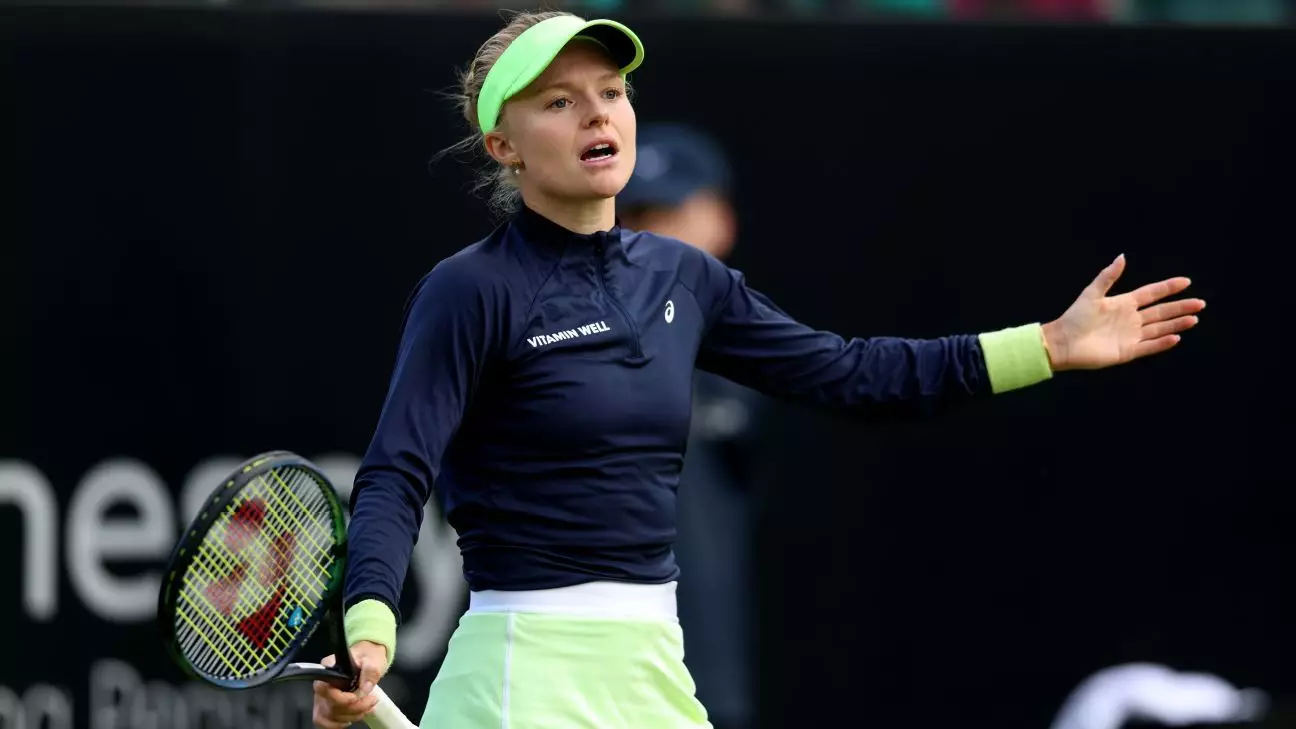In the often high-pressure world of professional tennis, players not only compete with their opponent on the court but also navigate the intense scrutiny that comes with being in the public eye. A recent incident involving Britain’s Harriet Dart and France’s Lois Boisson highlights the fine line athletes must walk between personal conduct and competitive spirit. After suffering a heavy defeat at the Rouen Open—losing 6-0, 6-3—Dart was heard making an inappropriate remark regarding Boisson’s personal hygiene during a changeover. The broadcast captured Dart asking the umpire to tell Boisson that she “smells really bad,” a comment that quickly ignited a firestorm on social media.
Public Reaction and Accountability
The online backlash was immediate and significant. Social media platforms erupted with criticism of Dart’s comments, calling it disrespectful and unprofessional. In an era where athletes are held to a standard of sportsmanship and respect, Dart’s remark was a grave misstep. Recognizing the gravity of her words, Dart took to Instagram to offer an apology, emphasizing that her comments were made impulsively in the heat of competition. She expressed her regret, stating she respects Boisson and acknowledged the need for personal growth from the experience.
This scenario invites an important conversation about the pressures of competitive sports. While athletes are expected to perform at their peak, they are also human, and moments of stressfulness can lead to regrettable remarks. Dart’s acknowledgment of her error illustrates accountability in a world that often falls short of it.
Boisson’s Charming Response
Interestingly, Boisson showcased an admirable level of grace and humor in her response to Dart’s comments. Rather than engaging in the vitriol that often characterizes social media back-and-forths, she shared a cleverly edited photo of herself on Instagram, featuring a Dove deodorant above her hand, humorously suggesting that perhaps the brand should consider a collaboration. This reaction not only defuses the tension but also turns a negative situation into an opportunity for levity—a strategy that could serve as an effective example for other athletes facing similar criticism.
The Impact of Competitive Pressure
Competitive sports often thrive on intensity, where athletes experience not only the physical demands of their sport but also the psychological burden of performing under a spotlight. For Dart, the pressure of competing as the higher-ranked player against a lower-ranked opponent only emphasizes the unpredictability of tennis. While failing to convert break points and dropping her serve multiple times are technical failures, her off-court comments reveal deeper struggles with pressure management.
This incident adds a layer of complexity to conversations about mental health and sportsmanship in athletics. Dart’s incident serves as a reminder that the pressure to perform can sometimes lead athletes to make choices that do not reflect their true character. Maintaining integrity and respect for fellow competitors is crucial, as these values extend far beyond the court and into the hearts of sports fans everywhere.
In a landscape where every action is scrutinized, Dart’s situation underscores the importance of emotional resilience and the capacity to learn and grow from one’s mistakes, ultimately reinforcing the notion that even in competition, empathy and understanding should reign supreme.


Leave a Reply